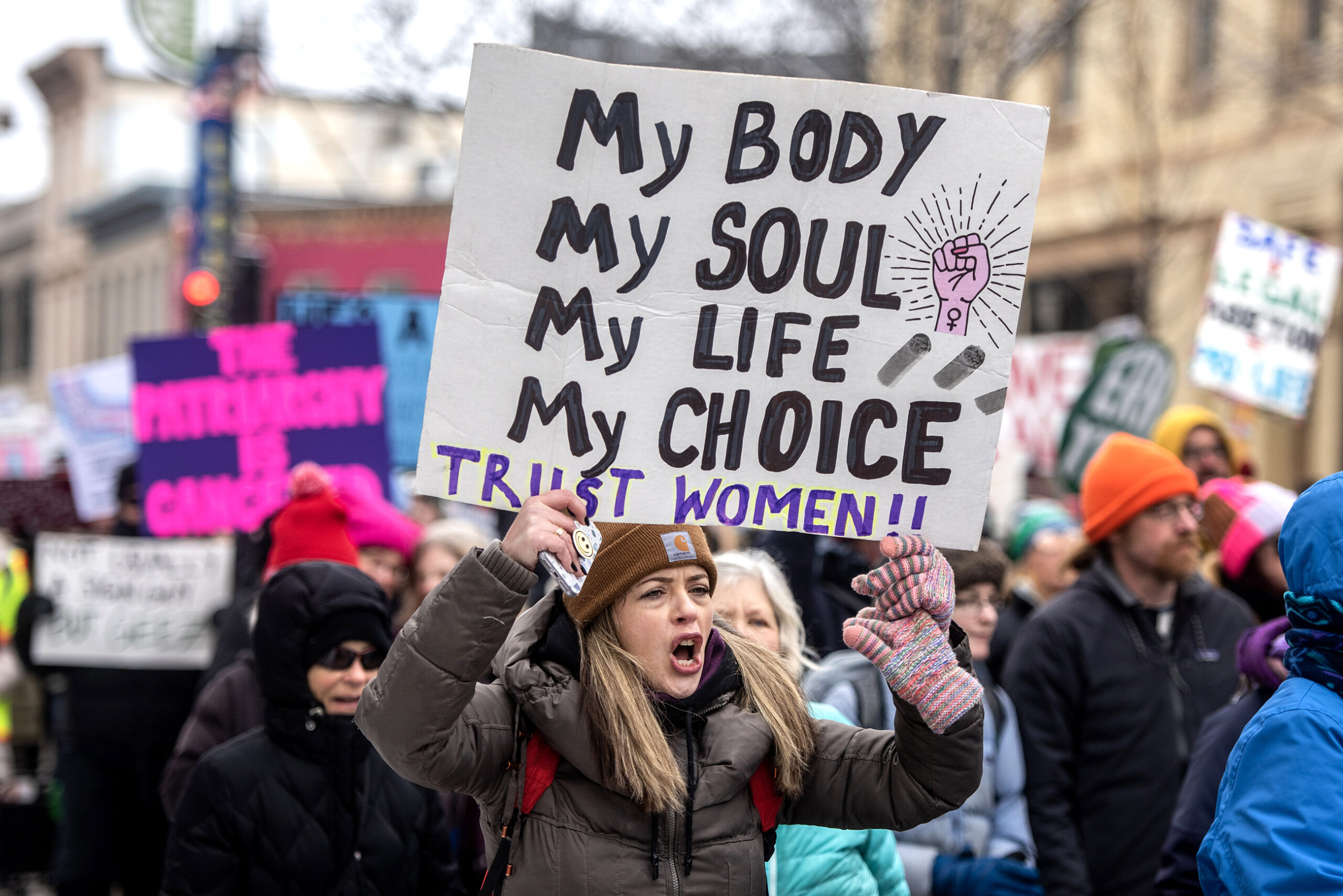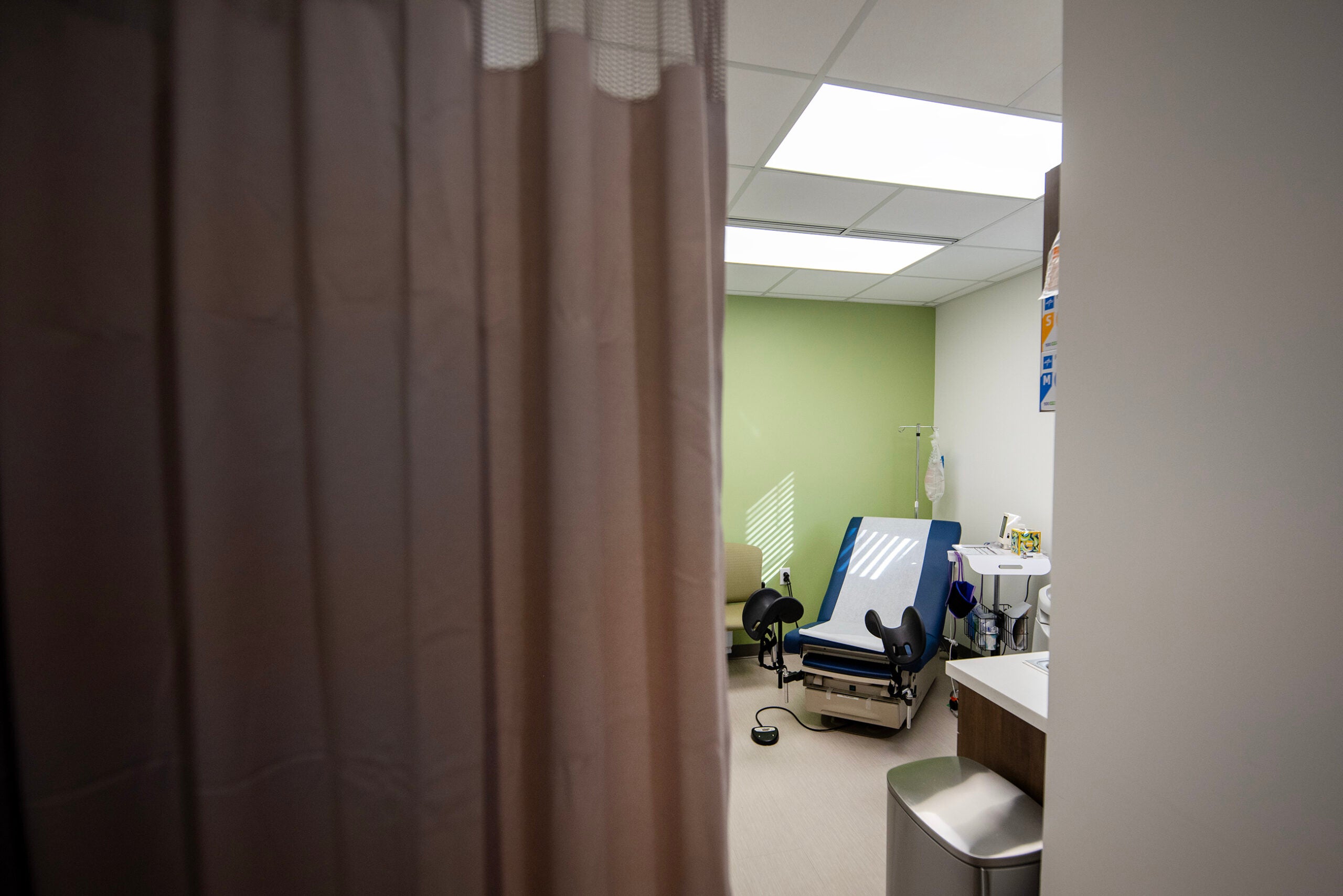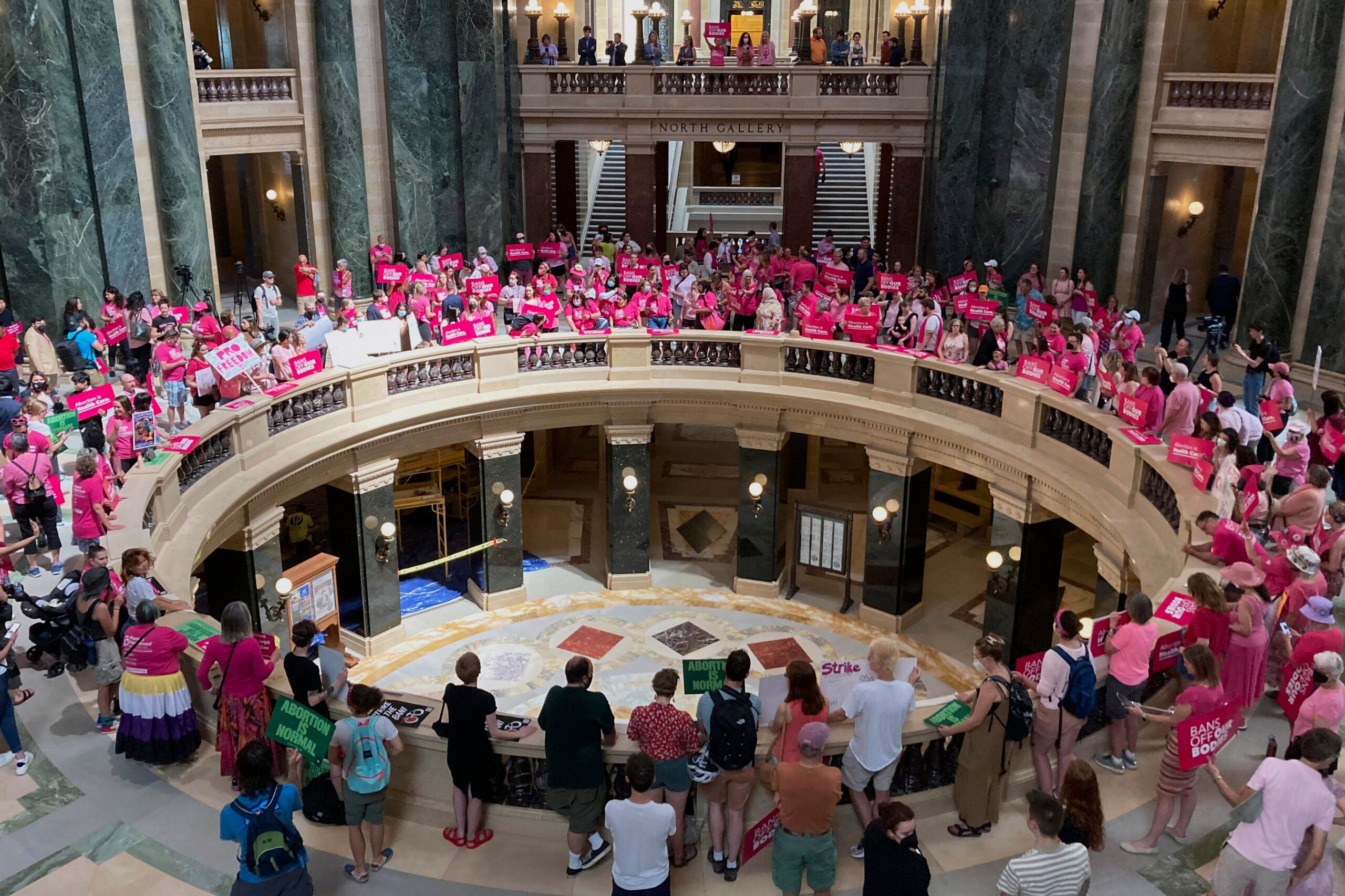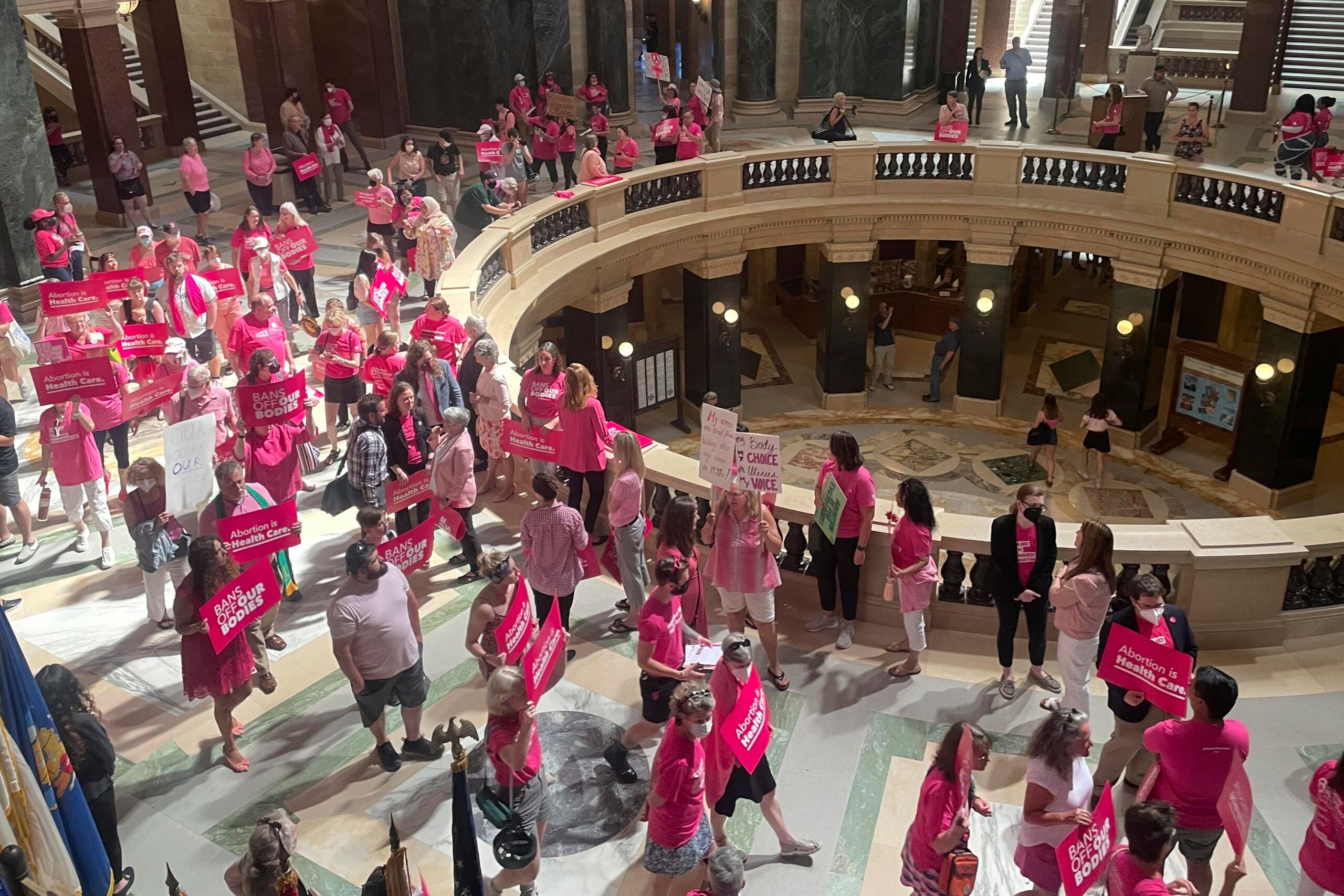In the two years since the U.S. Supreme Court struck down Roe v. Wade, Wisconsinites have seen abortion access disappear and return — all while courts have considered whether state law bans the procedure or the state constitution protects it.
On June 24, 2022, the U.S. Supreme Court’s conservative majority declared a right to abortion no longer exists under the U.S. Constitution, sending the issue back to the states. Abortion providers in Wisconsin ceased all abortion services, citing a law on the books that predates the Civil War.
Days after the federal decision came down, Democratic Wisconsin Attorney General Josh Kaul filed a lawsuit seeking to overturn the law, which was widely described as an abortion ban.
Things changed again last year, when a Dane County circuit court judge ruled the 19th century law does not prohibit consensual medical abortions. Planned Parenthood of Wisconsin announced it would resume abortion services at clinics in Milwaukee and Madison, arguing that the pre-Civil War ban is not enforceable. It later resumed abortion services in Sheboygan County.
“Wisconsinites went for 15 months without access to abortion care in their state,” Planned Parenthood Advocates of Wisconsin Communications Director Analiese Eicher told WPR. “While it’s resumed here, we are still in a bit of a legal limbo.”
News with a little more humanity
WPR’s “Wisconsin Today” newsletter keeps you connected to the state you love without feeling overwhelmed. No paywall. No agenda. No corporate filter.
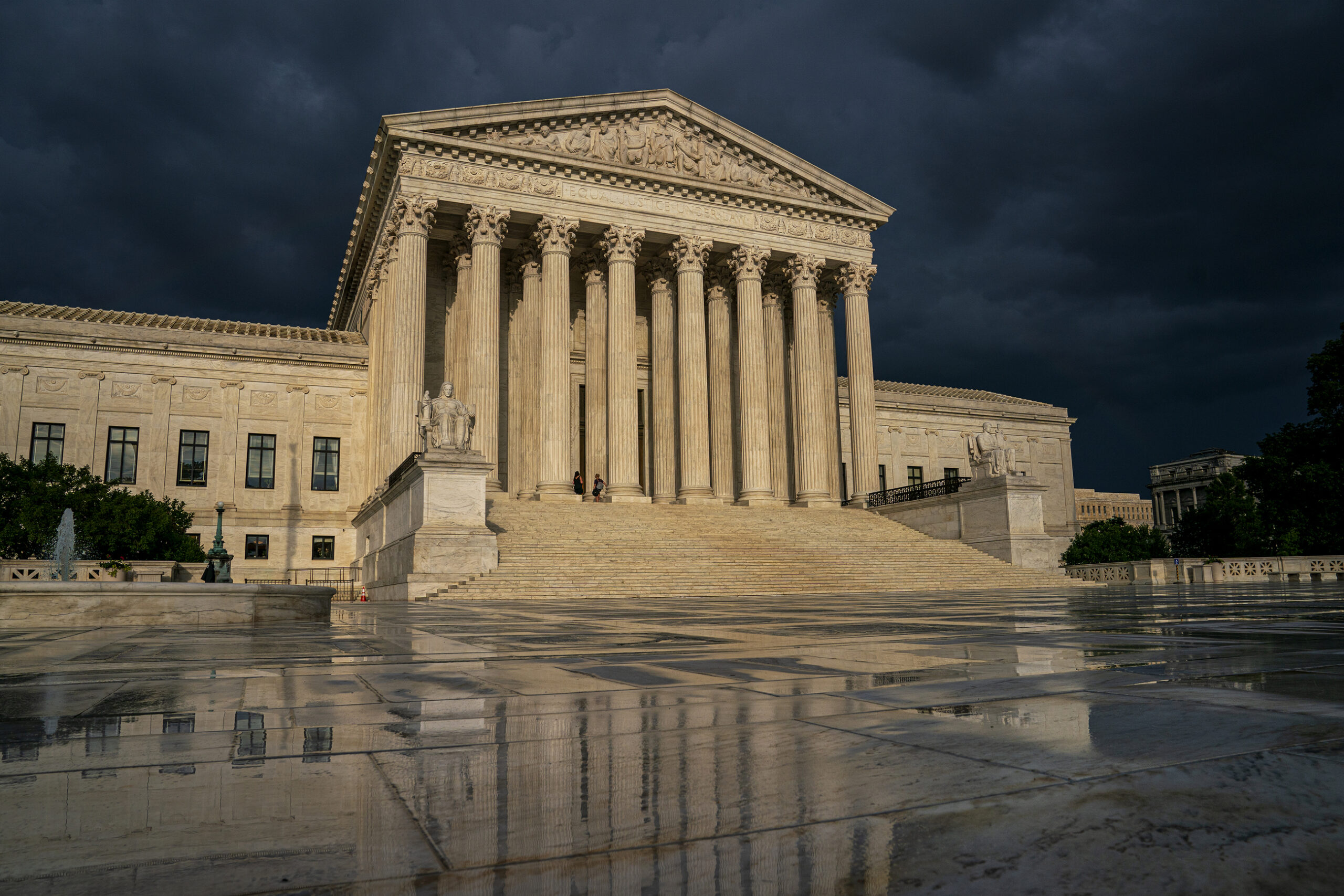
In February, Republican Sheboygan County District Attorney Joel Urmanski asked the state Supreme Court to bypass a state appeals court and immediately hear the case involving the 19th century law.
That same month, Planned Parenthood filed a petition with the state Supreme Court asking them to decide whether the Wisconsin Constitution protects a woman’s right to medical abortion services.
The overturning of Roe also played a key role in flipping the state Supreme Court majority from conservative to liberal with the election of Justice Janet Protasiewicz in April 2023. She was outspoken in her support for abortion rights, while her conservative opponent, former Justice Dan Kelly, had provided legal advice to the anti-abortion advocacy group Wisconsin Right to Life.
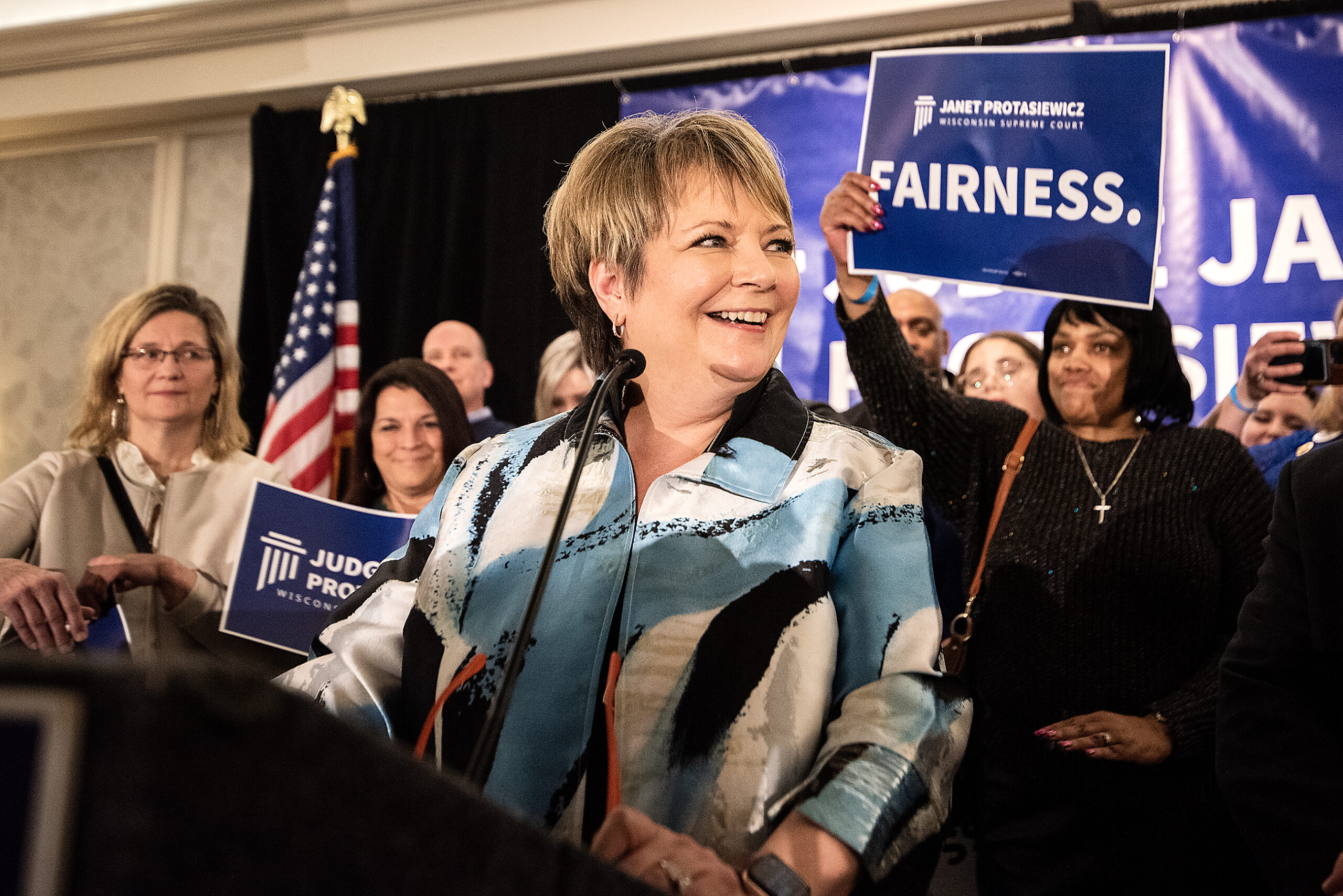
Wisconsin Right to Life Legislative Director Gracie Skogman told WPR the Planned Parenthood case before the court is “the most concerning” because it could make it “very hard to then have any protections for life.”
“We know that we are up against potentially a very devastating decision from the pro-life perspective,” Skogman said. “But the reality is that we’ve been seeing more and more in the past two years that pregnancy resource centers continue to be busier than they have ever been.”
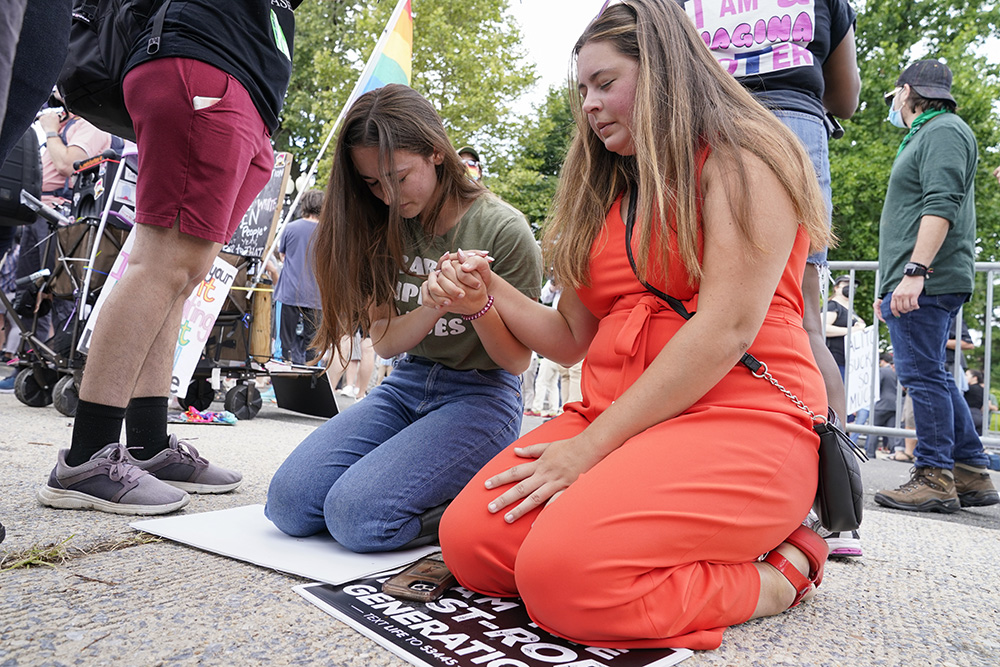
The decision to overturn Roe has upended state politics in other ways. Democrats have pressed the issue in virtually every election since.
At the Republican Party of Wisconsin’s state convention in May, Republican U.S. Sen. Ron Johnson urged GOP activists to set aside intra-party “squabbles” on abortion limits, telling the crowd, “We have to win elections.”
He noted many fellow Republicans want to ban abortion after conception, which equates to a total ban on abortion procedures. That position, Johnson told the crowd, was not where most Americans, Wisconsinites or “even most Republicans land.”
He described abortion bans after 12 to 15 weeks of pregnancy as “the reasonable position that most Americans agree with.” Wisconsin currently bans the procedure after 20 weeks, a law passed by GOP legislators and signed by former Republican Gov. Scott Walker less than a decade ago.
Johnson has pitched holding a statewide referendum to ask voters at what point society has “the responsibility to protect life in the womb.”
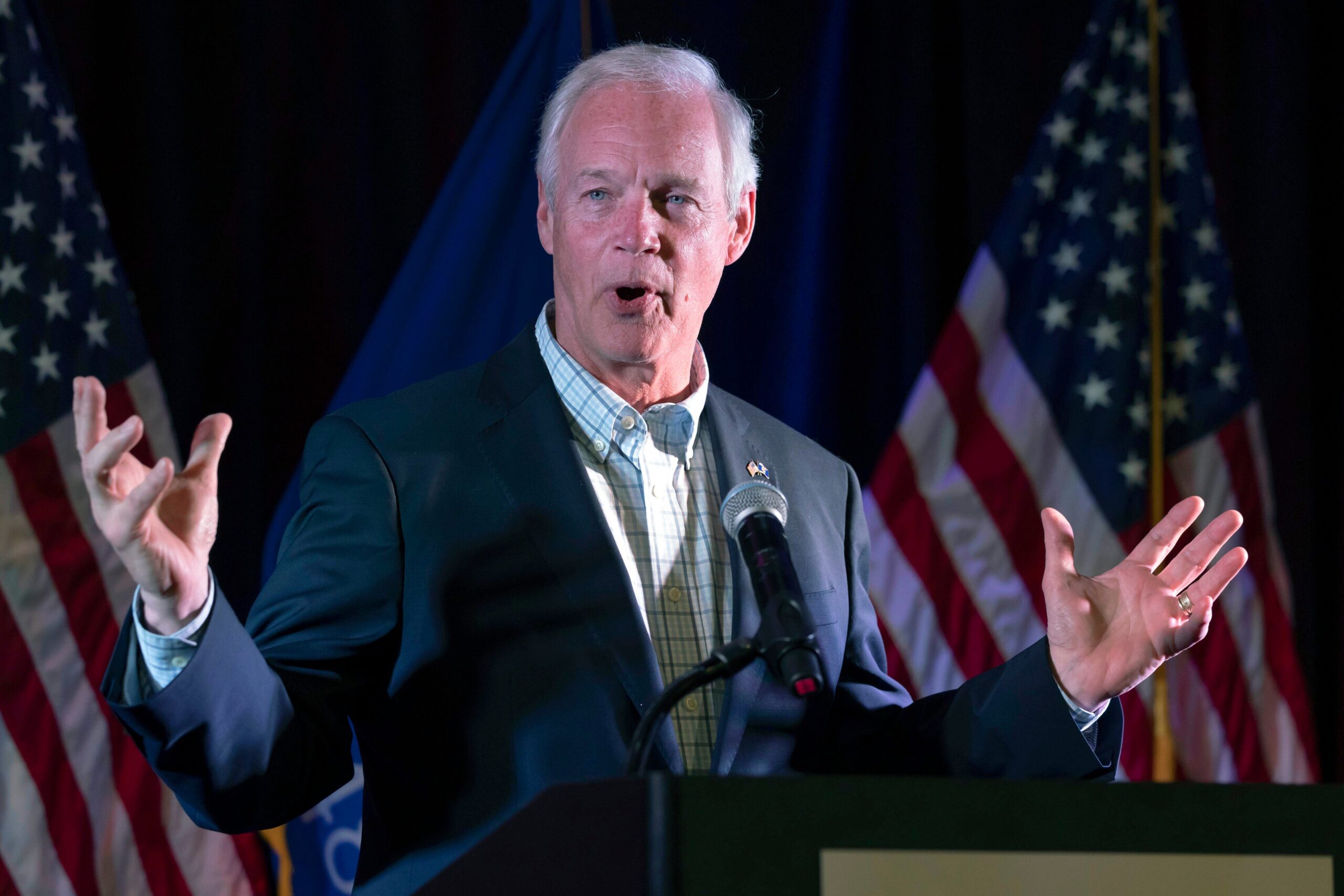
Eicher said regardless of how Johnson spins it, “a ban is a ban, regardless of time limits.”
“The folks who have been, I think, leading the efforts to restrict and end access to abortion in the state and in this country are also coming after the full spectrum of reproductive health care,” Eicher said. “And so, it’s important that we are paying attention and looking at the the whole picture, the big picture, and knowing that this is about so much more.”
Wisconsin Right to Life’s Skogman said her organization’s mission is “to change hearts and minds” of women in favor of life, a goal she said will continue regardless of what happens in court.
“We have to redefine how we think of pro-life victory and focus more and more on those women and how we can meet their needs and provide those services and support, because it’s helping us to realize that there are so many women who do want to choose life and want to have their their children, but can find themselves in really difficult circumstances,” Skogman said.
While the Supreme Court ordered briefs to be filed in the Planned Parenthood case, it has yet to rule on whether it will hear the case.
The court has also yet to agree to hear the case challenging Wisconsin’s pre-Civil War law.
Wisconsin Public Radio, © Copyright 2025, Board of Regents of the University of Wisconsin System and Wisconsin Educational Communications Board.

